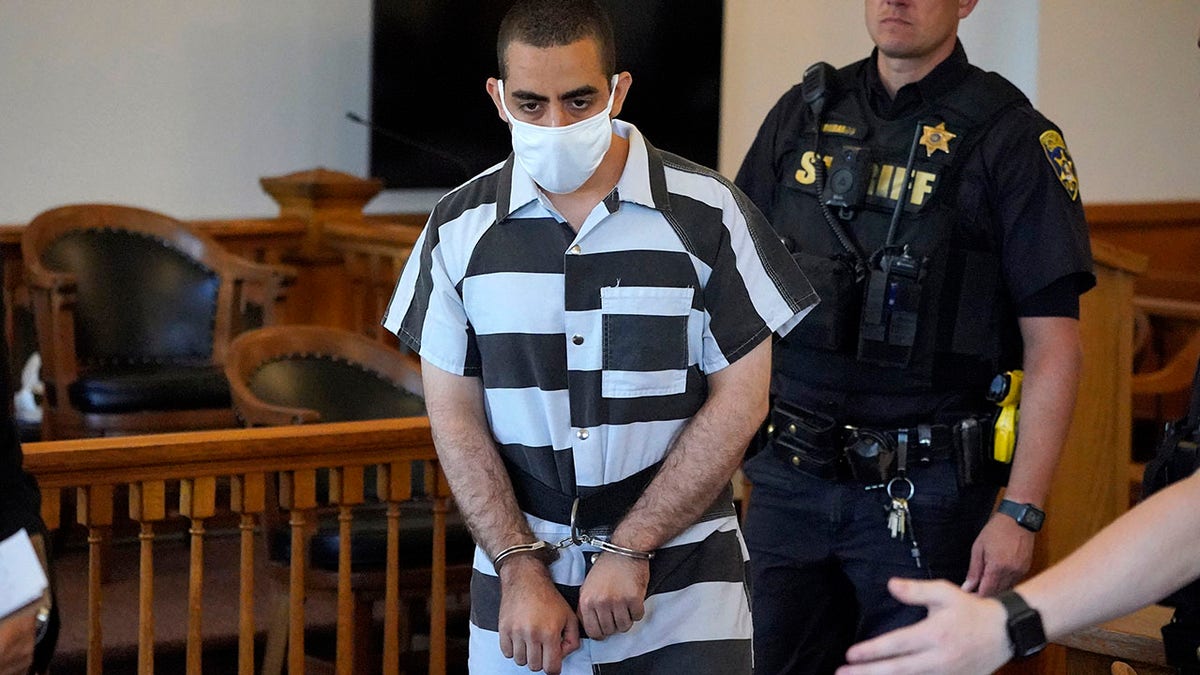Iran denies responsibility for Salman Rushdie stabbing
The 'Outnumbered' panel discussed the latest developments in the stabbing of author Salman Rushdie.
Hadi Matar, the assailant accused of stabbing author Salman Rushdie last week, said he is surprised the writer survived the attack.
"When I heard he survived, I was surprised, I guess," he told the New York Post from prison.
Matar went on to admit he had not actually read Rushdie's book at the source of the controversy, "The Satanic Verses."
"I read a couple pages. I didn’t read the whole thing cover to cover," he said.
Matar, 24, is accused of attacking Rushdie last Friday, but pleaded not guilty on Saturday to attempted murder in the second degree and assault charges. His next court appearance is Friday.

Hadi Matar arrives for an arraignment in the Chautauqua County Courthouse in Mayville, New York, on Saturday, Aug. 13, 2022. (AP Photo/Gene J. Puskar)
Matar's attorney entered the plea on his behalf during an arraignment in western New York. The suspect appeared in court wearing a black and white jumpsuit and a white face mask, with his hands cuffed in front of him.
Rushdie remains hospitalized with serious injuries. Fellow author Aatish Taseer tweeted that Rushdie was "off the ventilator and talking (and joking)." Rushdie’s agent Andrew Wylie confirmed that information without offering further details.
CLICK HERE TO GET THE FOX NEWS APP
"The Satanic Verses" drew death threats after it was published in 1988, with many Muslims regarding as blasphemy a dream sequence based on the life of the Prophet Muhammad, among other objections. Rushdie's book had already been banned and burned in India, Pakistan and elsewhere before Iran's Grand Ayatollah Ruhollah Khomeini issued a religious decree, or fatwa, calling for Rushdie's death in 1989.

In this still image from video, author Salman Rushdie is taken on a stretcher to a helicopter for transport to a hospital after he was attacked during a lecture at the Chautauqua Institution in Chautauqua, New York, on Friday, Aug. 12, 2022. (AP Photo)
Khomeini died that same year, but the fatwa remains in effect. Iran’s current supreme leader, Ali Khamenei, never issued a fatwa of his own withdrawing the edict, though Iran in recent years has not focused on the writer.
In Iran's first public comments addressing the assault, the country's Foreign Ministry spokesman Nasser Kanaani said in a briefing to journalists that Iran should not be accused of any involvement.
"We, in the incident of the attack on Salman Rushdie in the U.S., do not consider that anyone deserves blame and accusations except him and his supporters," Kanaani said. "Nobody has the right to accuse Iran in this regard."
Fox News' Sarah Rumpf and Landon Mion contributed to this report.

